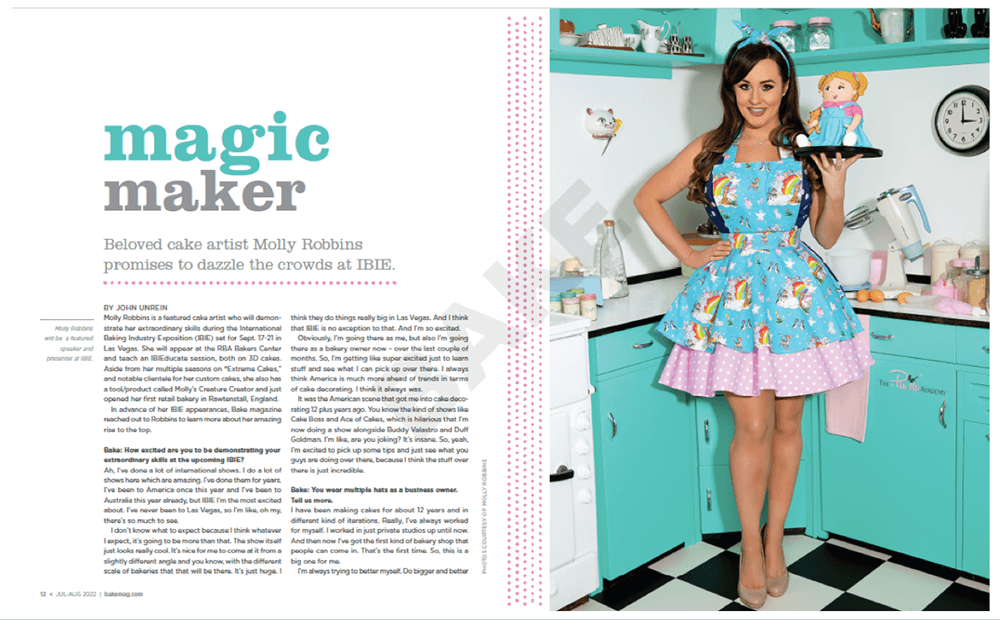
Influencers for the International Baking Industry Exposition generated awareness not only with their online communities but in traditional print press by working with trade pubs such as Bake.
If you haven’t added influencer marketing — a collaboration between popular social-media users and brands to promote brands’ products or services — into your event marketing mix yet, consider these five reasons to do so. Influencer marketing enables you to:
- Reach younger audiences. Influencer marketing serves as a powerful catalyst for events looking to attract a younger demographic. Influencers are deeply embedded in digital culture, providing a direct channel to audiences who cannot be reached as easily through traditional marketing channels, like Gen Z and millennials. We have seen significant ROI using influencer marketing for B2B events like SUPERZOO, the national show for pet retailers, and Grace Hopper Celebration, a series of conferences for women in computing — upward of 284 percent based on what was spent on the campaign and earned media value.
- Shape perception and build brand loyalty. Influencers wield the ability to form the narrative surrounding an event. Partnering with influencers who align with your event’s values and themes can create positive buzz, reinforcing key messaging points and perceptions. This not only attracts new attendees but helps to foster a sense of excitement and brand loyalty with existing audience members. Influencers for the International Baking Industry Exposition generated awareness not only with their online communities but in traditional print press, as well, by working with trade pubs on a barter basis to produce editorial content covering influencer involvement at the event.
- Drive results with a smaller budget. In today’s social landscape, there is a push for authenticity and relatability, which is why micro-influencers are able to drive results. Their smaller, loyal follower base usually makes a much bigger impact on engagement and comes at a more affordable rate of compensation than macro influencers. We have seen success in driving website traffic using micro influencers for events like SUPERZOO, AAPEX for the global automotive aftermarket industry, and IFT FIRST for science of food professionals.
- Find a more qualified, new audience. With declining databases and the great reshuffle making it challenging for event organizers to reach existing audiences using traditional methods, influencer marketing is a great way to build awareness among cold leads.
- Add a voice on non-active channels. If you have yet to dip your toe into other, more time-intensive social-media platforms like TikTok, influencer marketing is an effective way to incorporate event messaging that speaks to your brand values across these channels.
Sara Fellows is director of social media at mdg, A Freeman Company, a full-service marketing and public relations firm specializing in B2B events.
